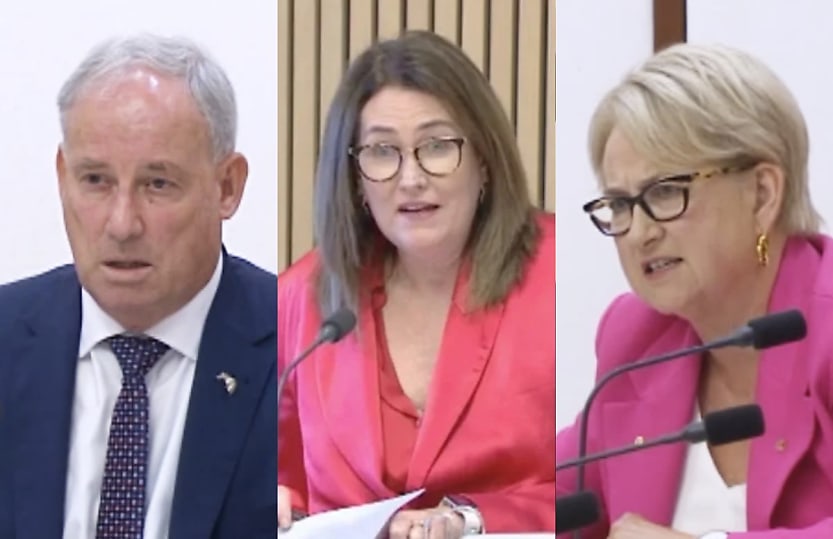PwC fails to demonstrate ‘genuine change’, Senate report finds

The inquiry has cast doubt over the ability of the big four firm to recover its reputation in an interim report released yesterday.
The Senate committee responsible for investigating the fallout from the PwC tax scandal said it was unclear how PwC would recover its reputation while continuing to “cover up” its misconduct.
“The failure of PwC to be completely open and honest as per the committee’s recommendations in its first report is reflective of PwC’s failure to genuinely change,” it said in its second interim report released on Wednesday afternoon.
The report, titled The Cover-Up Worsens the Crime, afforded the committee a second opportunity to share its thoughts on the evidence so far unearthed in the inquiry.
While the brunt of its criticism was reserved for PwC, the committee also took the opportunity to criticise information-sharing processes and potential conflicts of interest among regulatory authorities – most notably, the TPB and the ATO.
A frustrating investigation
“In the case of PwC and Mr Collins, the investigation took too long,” said the committee.
Despite both agencies claiming to have a “good working relationship,” the committee said it was clear the “tensions” were more serious than their testimony would suggest.
The tensions included the ATO taking issue with the TPB accessing information on its confidential database. The committee accepted TPB CEO Michael O’Neill’s suggestion that the pressure impacted the TPB’s ability to investigate the PwC matter.
While the committee accepted that access to the ATO’s database should be on a “need-to-know” basis, it said the agency has a responsibility to help facilitate the investigations of other agencies.
Had the TPB not pursued the matter, despite pressure placed upon it by the ATO, PwC would likely have “buried the matter forever,” they said.
Indeed, the Australian public would have been “no wiser” as to the identity of the wrongdoers and the complicity of senior PwC personnel.
While information-sharing reform – in the form of the Tax Accountability and Fairness Bill – has been introduced to parliament, the committee said it will not go far enough in addressing the barriers to regulatory coordination exposed in the PwC case.
Specifically, the bill will not affect the ATO’s ability to share information with the AFP, a “key issue which slowed the initial investigation.”
The committee also took issue with apparent conflicts of interest among regulatory boards concerning their ties with companies they are charged with regulating.
“That big four partners are and have been sitting on boards that also regulate consulting firms is an issue the committee will continue to investigate,” they said.
PwC’s commitment to change
The committee said it has “concerns” about the firm’s ability to change its “structures, practices, and culture” despite having made, and committed to, some improvements.
The committee said it was not convinced that substantive change is on the horizon, nor is it clear exactly when or how PwC plans to effect any change.
The committee’s first interim report criticised the firm’s “stonewalling” the ATO investigation by falsely claiming legal professional privilege over thousands of documents.
In its second report, it was the firm’s refusal to produce the results of an investigation into the extent of the tax leaks that, the committee said, undermined its commitments to change.
The so-called Linklaters report, which the firm’s global chair last week informed Australian Senators in charge of the inquiries would not be released, is both “crucial and glaringly absent,” the committee said.
PwC Australia’s CEO Kevin Burrowes assured the inquiry the leak implicated only six partners outside of Australia.
This claim, the committee said, is inconsistent with testimony from O’Neill who claimed the TPB’s investigation suggested the spread was “much broader than that.”
“PwC’s continued refusal to provide the Linklaters report is symptomatic of its problematic engagement with the committee,” said the committee.
Releasing it would be a “first step to restoring trust with the Australian parliament,” they added.
More broadly, the committee said questions remain around the complicity of senior leadership in the tax leak. For instance, evidence provided by former PwC CEO, Luke Sayers, was “impossible to reconcile.”
The committee said the evidence provided by Sayers did not give them confidence in his “period of leadership, his sense of responsibility, or his recognition of the scale and nature of events that unfolded” during his tenure.
“Taken together, the evidence points to the unethical behaviour at PwC being ignored by senior leadership during Mr Sayers’ term as CEO and subsequently,” it said.
Accepting the firm’s ability to change is complicated by its history of making superficial, fruitless commitments, said the committee.
The 2020 Quigley review made a series of tax governance and internal control reform recommendations, all of which the firm accepted. It has also made several reforms to its tax practice since 2016.
Concerningly, these changes “appear to have had no genuine and lasting effect” given the firm’s subsequent behaviour.
The report concluded by stating any changes, or commitments to change, continue to be undermined by the firm’s non-compliance with the inquiries.
“The committee does not see how PwC can recover their reputation while it continues to cover up because the two are incompatible,” it said.
“Indeed, the cover-up worsens the crime.”
About the author

